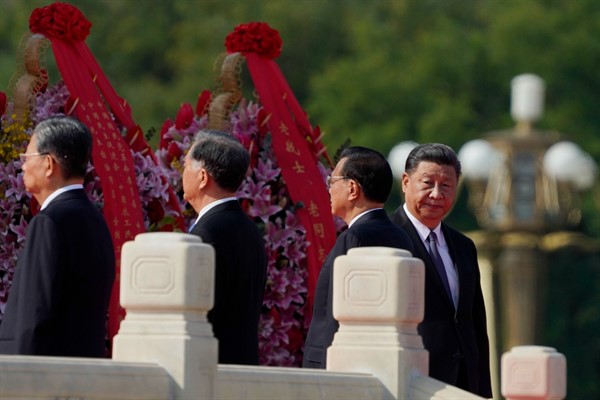When the world first started learning about the outbreak of a dangerously contagious new respiratory virus in the city of Wuhan, in central China, the Chinese government was defensive and secretive about it. Many foreign commentators were quick to cast China’s reaction as a metaphor for the inherent weaknesses of an authoritarian system.
Under the constantly tightening grip of its power-monopolizing leader, Xi Jinping, we were told, bad news has had an increasingly hard time traveling from China’s provinces to the capital in Beijing, and from there, into the higher echelons of the chain of command in the Communist Party. For a few weeks during this early phase of what became the coronavirus pandemic, most of what one read treated a country long regarded as an economic colossus as having been exposed as slow and clumsy in the face of an unexpected public health crisis.
China, so it seemed, was suddenly a giant with clay feet. In and around Wuhan, Chinese authorities were reduced to using mass quarantines and other blunt restrictions whose severity was regarded with distaste by many people in economically advanced democracies. Their geographical remoteness from China allowed them, momentarily, to affect a haughty and disinterested repulsion.

